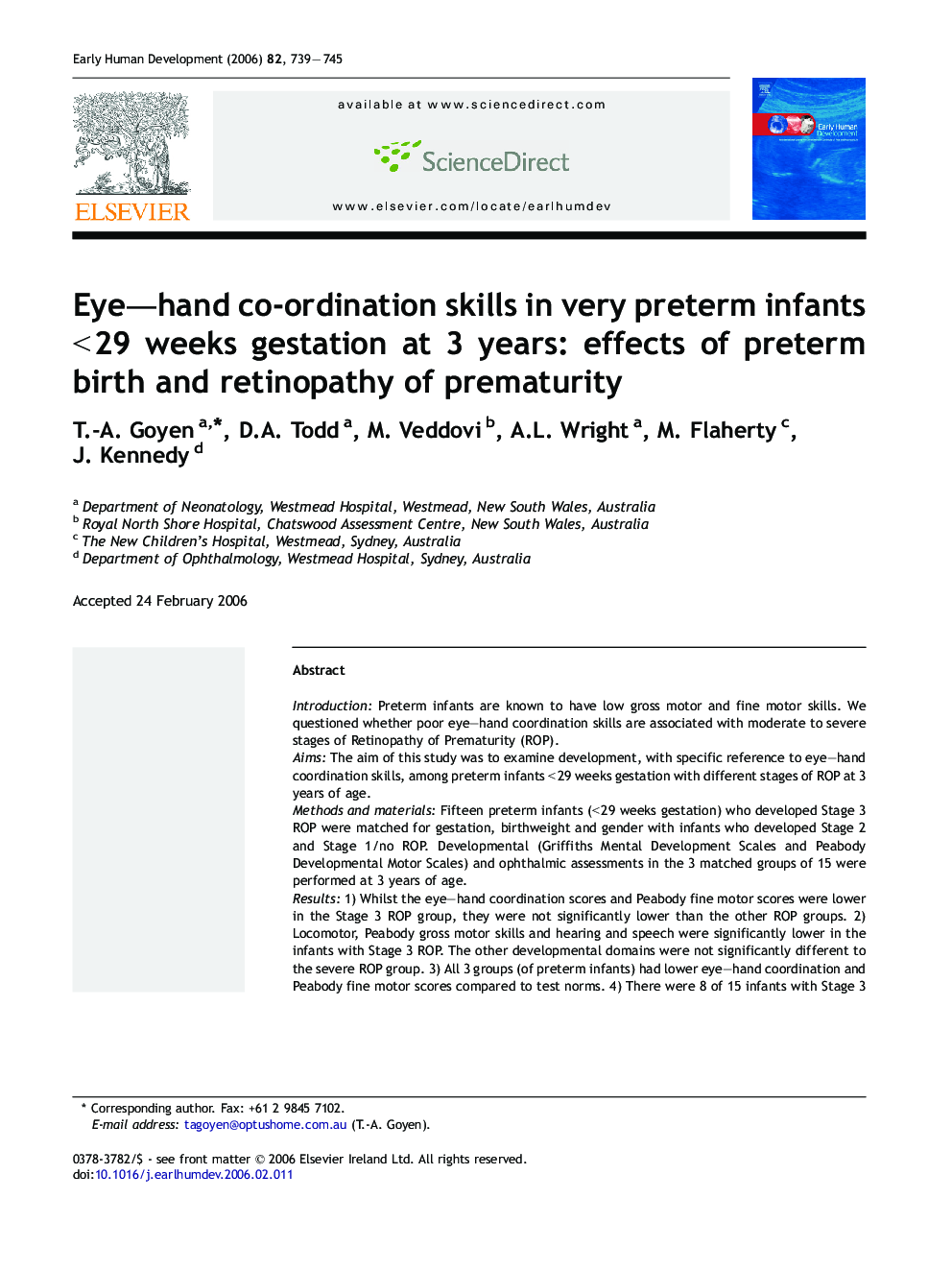| Article ID | Journal | Published Year | Pages | File Type |
|---|---|---|---|---|
| 3918093 | Early Human Development | 2006 | 7 Pages |
IntroductionPreterm infants are known to have low gross motor and fine motor skills. We questioned whether poor eye–hand coordination skills are associated with moderate to severe stages of Retinopathy of Prematurity (ROP).AimsThe aim of this study was to examine development, with specific reference to eye–hand coordination skills, among preterm infants < 29 weeks gestation with different stages of ROP at 3 years of age.Methods and materialsFifteen preterm infants (< 29 weeks gestation) who developed Stage 3 ROP were matched for gestation, birthweight and gender with infants who developed Stage 2 and Stage 1/no ROP. Developmental (Griffiths Mental Development Scales and Peabody Developmental Motor Scales) and ophthalmic assessments in the 3 matched groups of 15 were performed at 3 years of age.Results1) Whilst the eye–hand coordination scores and Peabody fine motor scores were lower in the Stage 3 ROP group, they were not significantly lower than the other ROP groups. 2) Locomotor, Peabody gross motor skills and hearing and speech were significantly lower in the infants with Stage 3 ROP. The other developmental domains were not significantly different to the severe ROP group. 3) All 3 groups (of preterm infants) had lower eye–hand coordination and Peabody fine motor scores compared to test norms. 4) There were 8 of 15 infants with Stage 3 ROP who developed moderate visual problems by 3 years of age.ConclusionIn preterm infants, low eye–hand coordination/fine motor scores are likely to be due to their extreme prematurity.
